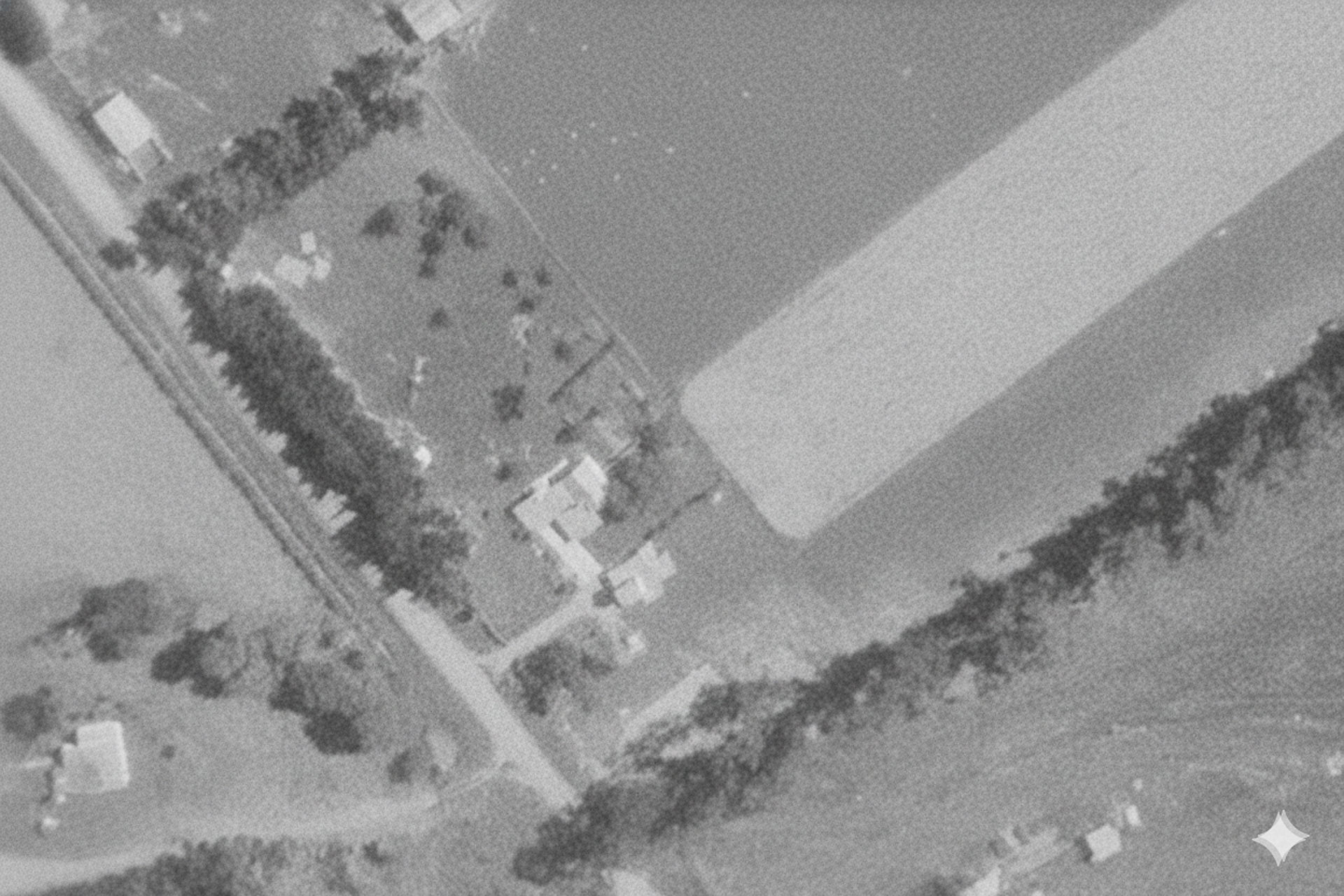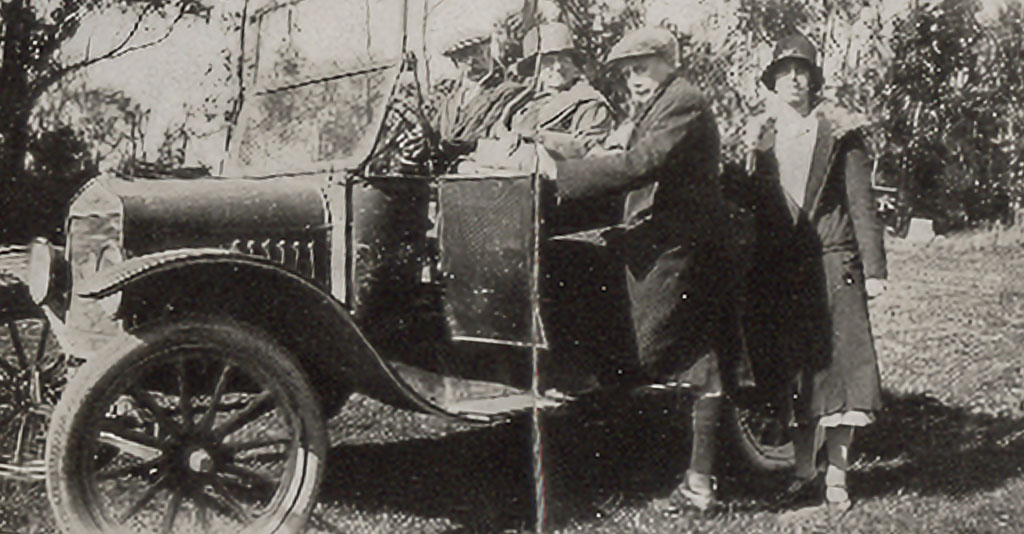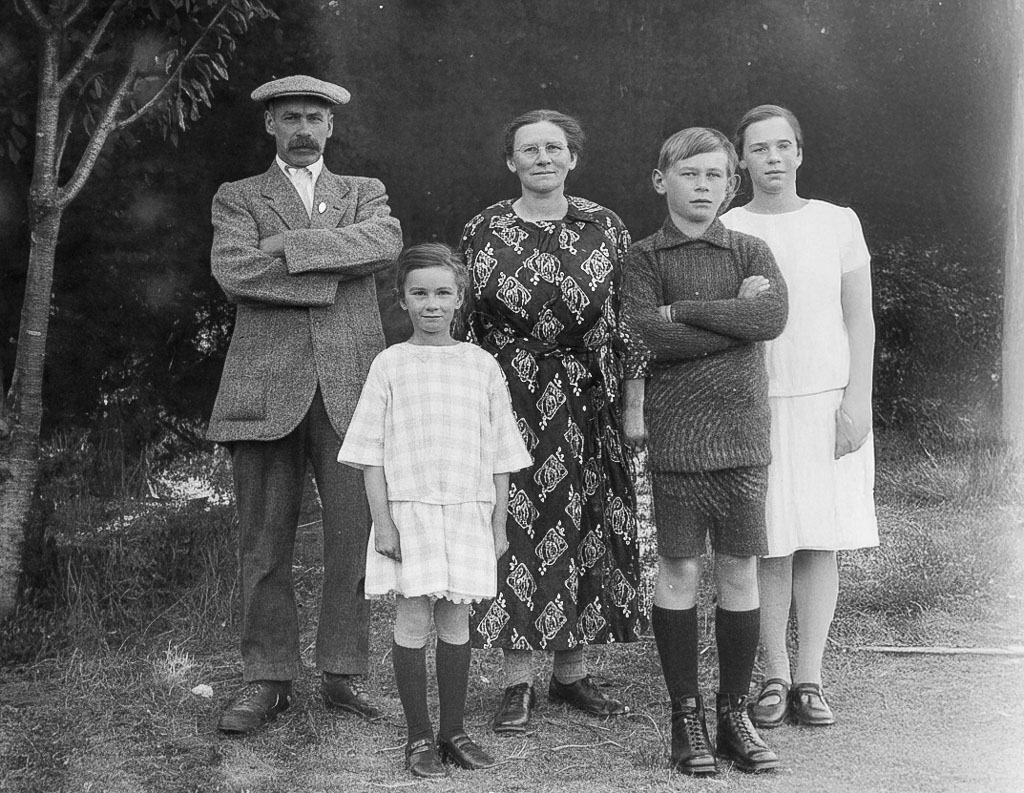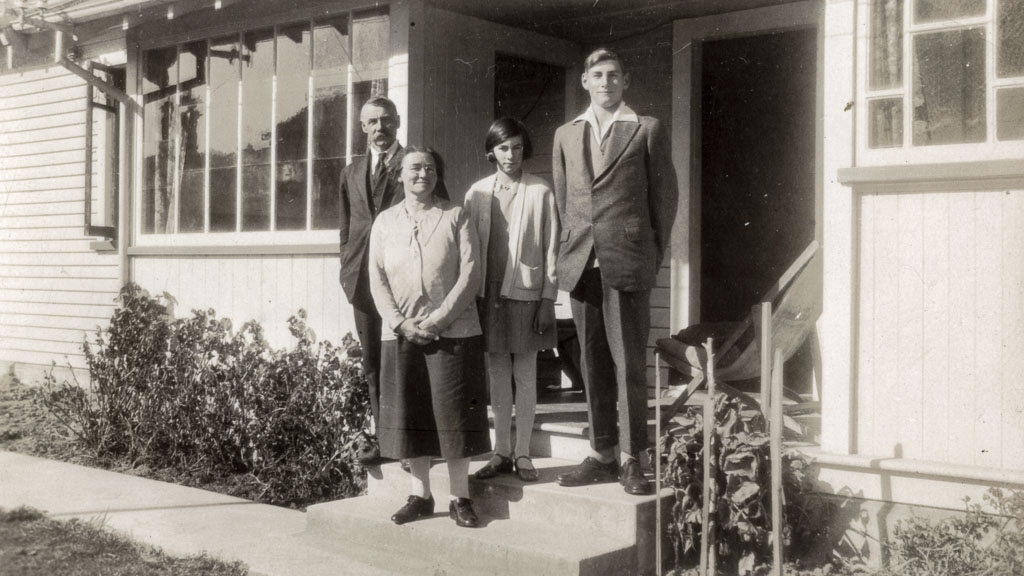Our Own Place
In March 1921, Mum and Dad decided that they would have to move somewhere closer to a school. Harry was six years old and had to go to a school, so they started to look for a place to buy. A family friend told them of a 10-acre place next to their farm at Springbrook. Dad looked it over and decided to buy it. 10 acres and a 4 roomed house and lots of fruit trees and a row of large blue gum trees. He paid £600 for this property.
We arrived on the 1st April 1921, this was Mum and Dad's very own place – their castle – they owned every stick and stone of the 10 acres also the old 4 roomed house plus every borer that went with the house.
The House and Facilities
There was a kitchen, scullery, 2 bedrooms and a tiny pantry. There were no conveniences. Water for domestic use had to be pumped by hand from a concrete storage tank set down in the ground. The water was rainwater collected from the roof of the house, washhouse and dairy.
There was another pump (goose neck) well in the garden, but the water was not suitable for washing either us or dishes or clothes, as it was very hard. Lime was the main ingredient that caused the soap to form a thick scum. This water was pumped up and used for cattle, horse, hens, pigs and any other outside use.
The Kitchen Stove
The kitchen had an old coal stove, which smoked badly when a Northwest wind blew. We could not use the fire on those days. As the Northwest wind usually blew for 3 days, we had an old primus on which to boil water. It was a thrill a couple of years later when we had a new stove.
Lighting and Sanitation
We had no electric power or telephone, and we were one mile from a school and three miles from the nearest shop, Post Office and train station. For lighting, we used a kerosene globe lamp which was about five inches high and would not tip over and gave out about two candles worth of light.
The toilet was near a hedge and covered with ivy. Some had grown through the cracks in the walls and grew inside as well as outside. It was quite attractive.
Improvements

In 1924, Dad built two rooms, hall and bathroom, onto our old lean-to house. It was lovely. It had hot and cold water over a newly installed sink, bath and basin. Outside drains were not dug but the water was collected in buckets and carried to the garden to water plants. Later we had drains and a septic tank.
Water Supply: Years later, about 1948, water was piped to all the farms. Troughs were in all the paddocks and running water to all the houses. This was the Downlands scheme.
Farm Life and Work
Dad grew a lot of fodder for the cattle and horse. When the turnips were large enough to be thinned, Harry and I used to be given the task of helping Dad. We followed behind him and the hoe and we had to make sure that there was only one turnip to grow up by itself, not too close to its neighbor.
We helped plant rape and helped rake up the Lucerne hay. We helped pick apples, feed pigs, cows and hens. Harry, as soon as he was old enough, helped milk the cows. Mum said the girls were not going to milk cows, so I did the separating.
The Cream and Milk
Turning the handle of the separator to separate the milk and cream of four or five cows. This before we went to school (secondary school). I used to have a cup and would dip out some milk and hold the cup under the cream spout then drink it. I had two cups of this each day and am sure that this is why at 89 I still have my own natural teeth.
Transport

In 1926 dad bought his first car for 26 pounds, a T Model Ford ½ ton truck. It had been a butcher's van. I learnt to drive in 1928 – I was 16 and passed my license.
Entertainment and Social Life
Our entertainment was varied; we had no shops within 3 miles, so we never had sweets, bought biscuits or any treats. We were occasionally allowed to make toffee. There was a large orchard so there were always apples, pears and plums to eat in season.
School Days

At primary school we had a lot of games. We had a May Pole with ropes. This was very popular with the bigger children. We had skipping and races and the competition was very keen. On wet days we had a concert in the outside shelter shed. Everyone took part and enjoyed the fun.
We had a basketball team and football team. If you wanted a drink of water at school, you had to pump the water up and use a mug which was left beside the pump. The Pareora River was just over the playground fence, and we would spend lunchtime there when suitable. We tickled trout and caught eels. We all learnt to swim in that river.
As Teenagers

As teenagers, we had a Tennis Club. There was a very rough grass court but we had a lot of fun. During the winter, the school committee held a euchre party each Wednesday night with good prizes. Admission was 1 shilling. They also held the occasional dance in the school.
The school porch was divided and one half used as a supper room where all the beautiful cakes and sandwiches were displayed on a table. This was also the ladies' powder and dressing room. One squeezed past the food table and looked at oneself in a small mirror and combed one's hair and powdered one's face. Hair and powder floating all over the food. No health regulations in those days, about 1928.
The Fire
One windy day, we had a very lucky escape from a big fire. Dad had carted a few loads of straw for bedding for the pigs. This straw had been piled up beside the garage which was joined to the cowshed. Hot ashes from a neighbour's rubbish fire were brought to life by a strong southerly change in the wind.
The ashes were blown across a track into Dad's loose straw which blazed like mad and caught the garage and cowshed. I backed the car out and let the pigs out of their sty. Dad had bought this car six weeks before, a 1933 disc-wheeled Chevrolet ½ ton truck.
Harry filled the sprayer used for spraying the fruit trees and kept spraying the outside walls of the honey house to keep them from catching fire. The walls got so hot that they kept steaming. The fire was huge, and the wind kept blowing the loose burning straw all over the yard.
Some burning straw landed on Harry's tent where he slept. It set the tent afire and by this time we were out of water, so Mum rushed over with two buckets of pig slops and put the fire out. We were very lucky. It took a while to rebuild the cowshed and chaff and implement shed plus a new and proper garage.
